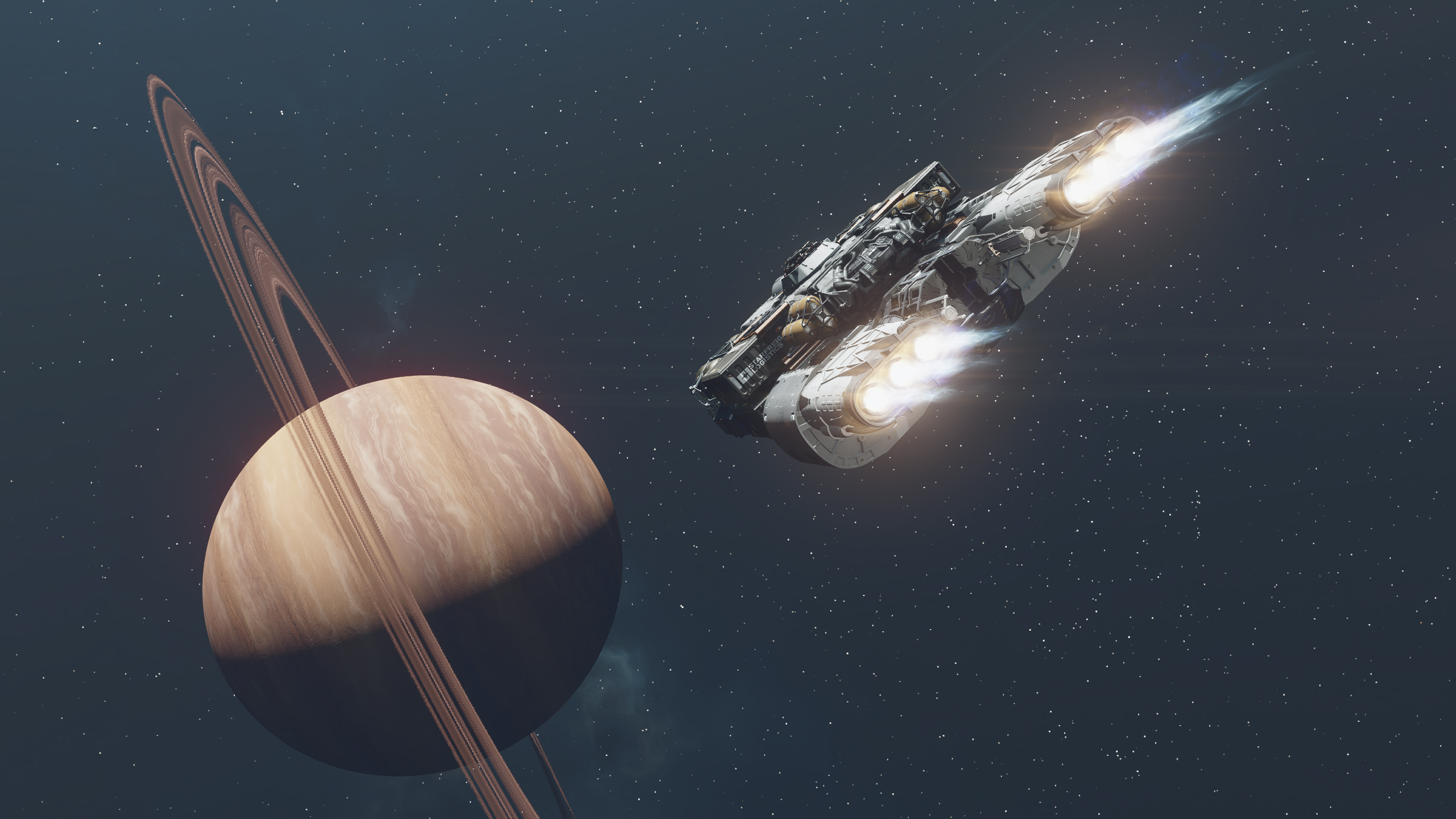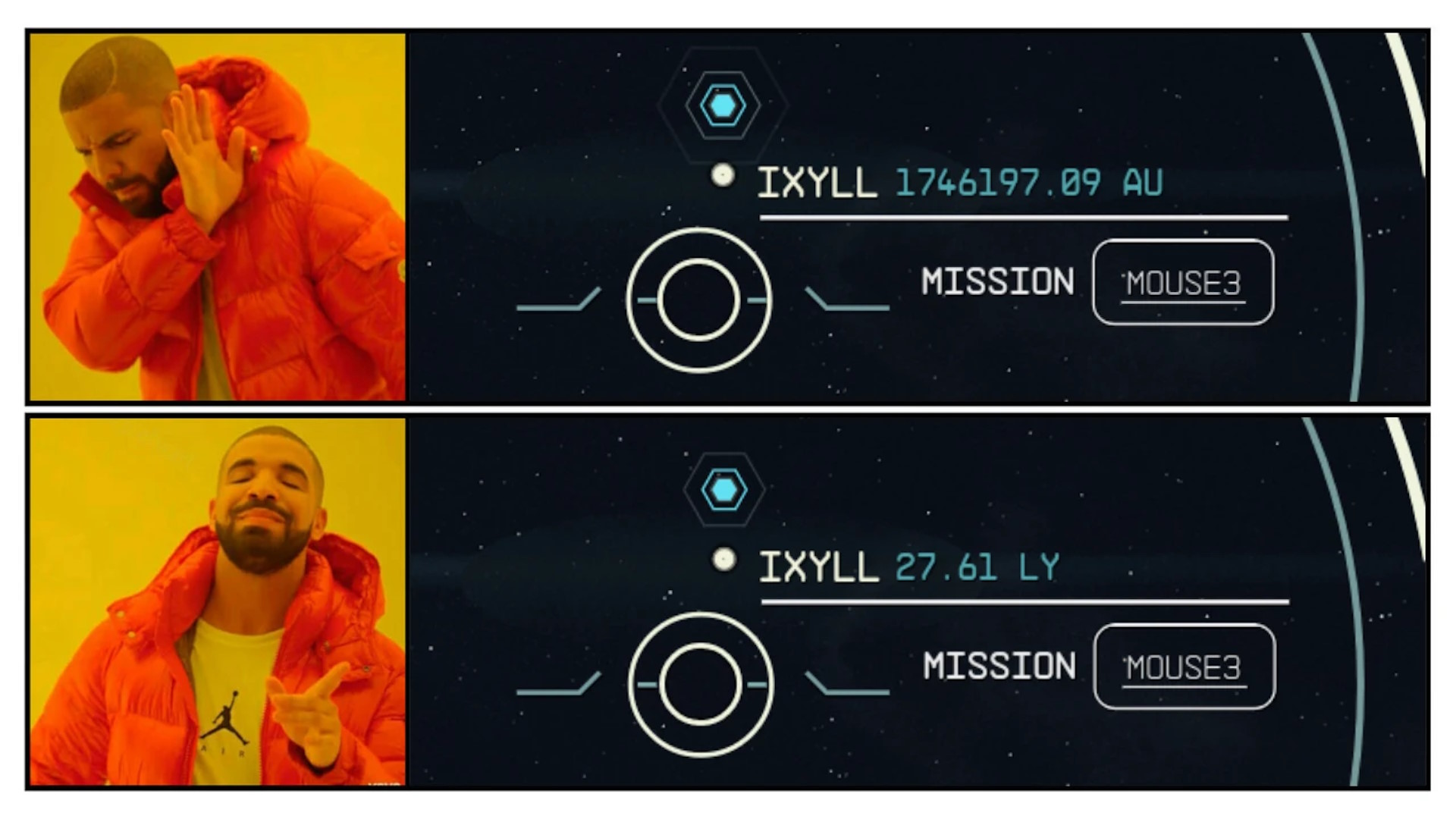
Have you ever thought to yourself, boy, I sure do wish the Starfield HUD displayed interstellar distances in light years instead of astronomical units? If your answer to this question is "yes," then it might be time to take a break and go outside for a while. Or, instead, you could download this extremely purpose-specific Starfield mod called, quite simply, See Distances in Light Years.
"Does what it says on the tin," the mod description states. "Makes your ship's HUD display interstellar distances in light years (LY) instead of astronomical units (AU). Also increases the maximum light second (LS) value from 50,000 to 500,000. If anything is further than that, distance will start being measured at 0.02 LY."
Developer Deebz96 said they created the mod because they "found AU illegible for these sort of distances," and that the light year measure "is much easier to interpret at a glance, especially if you are used to other space games." I found that complaint a little odd at first: To my mind, space games are mostly just made-up nonsense anyway (even the "realistic" ones), so who cares if one incomprehensible unit of measurement is swapped with another?
But apparently I'm a bit like an American dealing with the metric system in that regard, as a quick trip around to Reddit reveals that this is in fact an aspect of the game some players genuinely don't care for. Some of that seems to be related to a general lack of familiarity with what an astronomical unit actually is (it's the distance from Earth to the sun, for the record), but there's also the fact that AU measurements can get really big when you're dealing with interstellar distances.
"Astronomers rather tend to use LS (light second) units within a planetary system (or LD - lunar distance in case of NEOs - near-Earth objects), AU units regarding things that are within a solar system, and lightyears regarding stuff that are further away," redditor Racehorse88 explained in September 2023, shortly after Starfield launched.
"I kind of scratched my head when I first saw that in Starfield, even distances as vast as a dozen lightyears are displayed in hundreds of thousands AU, which is sort of the same meaningless stuff as expressing the Earth-Jupiter distance in hundreds of millions miles. I didn't really get why they didn't use LY as well if they already implemented LS and AU."
FireChicken2396 said essentially the same thing in a comment on NexusMods: "It baffles me that Bethesda chose to use BOTH Light Years and Astronomical Units in the game. AU was most of the time in the millions and so hard to understand the actual distance at a glance."
I can see where the complaints are coming from to the extent that big numbers are a hassle to deal with, and so even though I have no idea how far a light year is (and wouldn't be able to comprehend the distance in a meaningful way even if I did), the smaller measurements are much easier to relate to.
It also arguably sounds cooler: Measurements in astronomical units might fit the "NASA-punk" motif Bethesda was aiming for with Starfield, but measuring things in light years I think better conveys the feeling that, "Yeah baby, we're in space!"

There's not exactly a huge crowd of Starfield players clamoring for it, but at least one redditor asked for a mod just like this one not long after Starfield came out, so there's clearly some interest in it out there. If you're among those who'd rather have LY than AU, here you go: You can pick up See Distances in Light Years from Nexus Mods.







